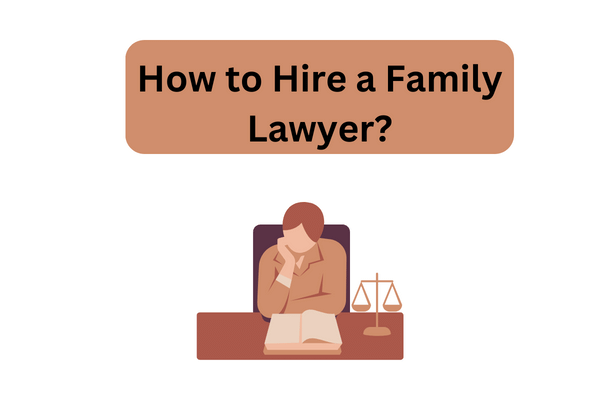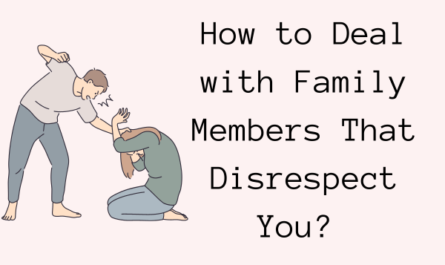How to Hire a Family Lawyer?
Hiring a family lawyer is a crucial decision that can greatly impact your life and the lives of your loved ones. Whether you are facing a divorce, seeking child custody, dealing with domestic abuse, or considering adoption, having the right family lawyer by your side can make all the difference. This article aims to guide you through the process of hiring a family lawyer who is not only proficient in legal matters but also understands the emotional aspect of family disputes.
Understanding the Need for a Family Lawyer
Family lawyers specialize in handling legal matters related to family relationships. These may include divorce and separation, child custody and support, adoption and surrogacy, domestic violence, and prenuptial agreements. Before you begin your search for a family lawyer, it’s essential to assess your specific legal needs and what you hope to achieve through legal representation.
3.1. Divorce and Separation
Divorce and separation can be emotionally challenging, and a skilled family lawyer can help you navigate through the legal complexities, division of assets, and spousal support.
3.2. Child Custody and Support
When it comes to matters involving children, a family lawyer can assist in establishing custody arrangements and ensuring the best interests of the child are protected.
3.3. Adoption and Surrogacy
Adoption and surrogacy proceedings require adherence to strict legal procedures, and an experienced family lawyer can facilitate a smooth and successful process.
3.4. Domestic Violence and Abuse
If you or your loved ones are facing domestic violence or abuse, a compassionate family lawyer can provide the necessary legal protection and support.
3.5. Prenuptial and Postnuptial Agreements
Family lawyers also help in drafting prenuptial and postnuptial agreements, ensuring the assets and finances of both parties are protected in case of separation.
Researching Potential Lawyers
Once you have a clear understanding of your legal needs, it’s time to research potential family lawyers who specialize in the relevant areas. Here are some steps to guide you in your research:
4.1. Recommendations and Referrals
Start by seeking recommendations and referrals from trusted friends, family, or colleagues who have previously worked with family lawyers.
4.2. Online Directories and Reviews
Online directories and reviews can provide valuable insights into the reputation and track record of potential lawyers.
4.3. Evaluating Experience and Expertise
Look for a lawyer with significant experience in handling cases similar to yours, as expertise is crucial in family law matters.
4.4. Checking Credentials and Licenses
Ensure that the lawyer is licensed and accredited to practice family law in your jurisdiction.
4.5. Initial Consultations
Schedule initial consultations with the shortlisted lawyers to discuss your case and assess how they approach your situation.
Assessing Compatibility and Communication
Aside from legal expertise, the compatibility between you and your family lawyer is vital for a successful partnership. Pay attention to the following factors during the consultation:
5.1. Openness and Empathy
A good family lawyer should be open to understanding your unique situation and show empathy towards your concerns.
5.2. Clear Communication
Effective communication is essential in any legal representation. Ensure that your lawyer communicates clearly and explains legal terms in a way you can understand.
5.3. Respectful and Supportive
Your family lawyer should treat you with respect and provide the necessary support throughout the legal process.
5.4. Availability and Responsiveness
Consider the lawyer’s availability and responsiveness to your calls and messages, as prompt communication is crucial during legal proceedings.
Understanding Legal Fees and Billing
Before finalizing your decision, it’s crucial to discuss legal fees and billing arrangements with your potential family lawyer.
6.1. Hourly vs. Flat Fee
Understand whether the lawyer charges hourly rates or offers a flat fee for their services.
6.2. Retainers and Additional Costs
Ask about retainers and any additional costs that may arise during the legal process.
6.3. Fee Agreements and Contracts
Request a written fee agreement that outlines the scope of services and associated costs.
Making Your Decision
Once you’ve gathered all the necessary information and assessed the compatibility of the lawyers, it’s time to make your decision.
7.1. Gut Feeling
Trust your instincts and choose a family lawyer whom you feel most comfortable with.
7.2. Comparison and Analysis
Compare the strengths and weaknesses of each lawyer to make an informed decision.
7.3. Trusting Your Instincts
Ultimately, trust yourself to make the best choice for your legal representation.
Collaborating Effectively
Once you’ve hired a family lawyer, effective collaboration is crucial for the success of your case.
8.1. Providing Relevant Information
Be open and honest with your lawyer, providing all relevant information pertaining to your case.
8.2. Being Honest and Transparent
Your lawyer needs to know all the facts to represent you effectively.
8.3. Following Legal Advice
Listen to your lawyer’s advice and follow their guidance throughout the process.
The Role of Mediation and Settlement
In family law cases, mediation can often be a more amicable and cost-effective alternative to litigation.
9.1. Benefits of Mediation
Explore the benefits of mediation, such as preserving relationships and reducing legal expenses.
9.2. Reaching Amicable Solutions
Work with your family lawyer to reach mutually agreeable solutions through mediation.
Preparing for Litigation
In some cases, litigation becomes necessary. Prepare yourself for the potential challenges ahead.
10.1. Understanding the Process
Familiarize yourself with the litigation process, including court proceedings and deadlines.
10.2. Gathering Evidence and Witnesses
Collaborate with your family lawyer to gather necessary evidence and identify potential witnesses.
Ensuring Confidentiality and Privacy
Family matters are often sensitive and private, and your lawyer should prioritize confidentiality.
11.1. Safeguarding Sensitive Information
Discuss with your lawyer how they will protect your confidential information.
11.2. Nondisclosure Agreements
Consider signing nondisclosure agreements to maintain privacy.
Evaluating Progress and Flexibility
Family legal matters can be unpredictable, so it’s essential to evaluate progress and remain flexible.
12.1. Regular Updates and Reports
Ensure your lawyer provides regular updates and progress reports on your case.
12.2. Adapting to Changing Circumstances
Stay open to adjusting legal strategies if circumstances change during the process.
The Emotional Aspect of Legal Proceedings
Legal proceedings involving family matters can be emotionally draining, so take care of your well-being.
13.1. Managing Stress and Anxiety
Seek support from family, friends, or professionals to manage stress and anxiety.
13.2. Seeking Emotional Support
Your family lawyer can provide legal support, but don’t hesitate to seek emotional support when needed.
FAQs: How to Hire a Family Lawyer?
1. How much does it cost to hire a family lawyer?
The cost of hiring a family lawyer varies depending on various factors, such as the complexity of the case and the lawyer’s experience. It’s essential to discuss fees and billing arrangements during the initial consultation.
2. Can I represent myself in a family law case?
While it is possible to represent yourself, family law matters can be intricate, and having a knowledgeable lawyer can significantly improve your chances of a successful outcome.
3. How long does a family law case usually take?
The duration of a family law case varies based on the complexity of the matter and whether it involves mediation or litigation. Some cases can be resolved within a few months, while others may take a year or longer.
4. What should I bring to the initial consultation with a family lawyer?
Bring any relevant documents, such as marriage certificates, financial records, and communication with your spouse or the opposing party. The more information your lawyer has, the better they can advise you.
5. Can a family lawyer help with child custody modifications?
Yes, a family lawyer can assist in seeking modifications to child custody arrangements when there are significant changes in circumstances that warrant a modification.
Conclusion: How to Hire a Family Lawyer?
Hiring a family lawyer is a crucial step in navigating complex legal matters related to family relationships. By following the outlined steps and considerations, you can find a skilled and empathetic family lawyer who will represent your interests and support you through every step of the process.
Visit the link to read more: https://family-fitness-fun.com/how-to-prove-domestic-violence-in-family-court/





